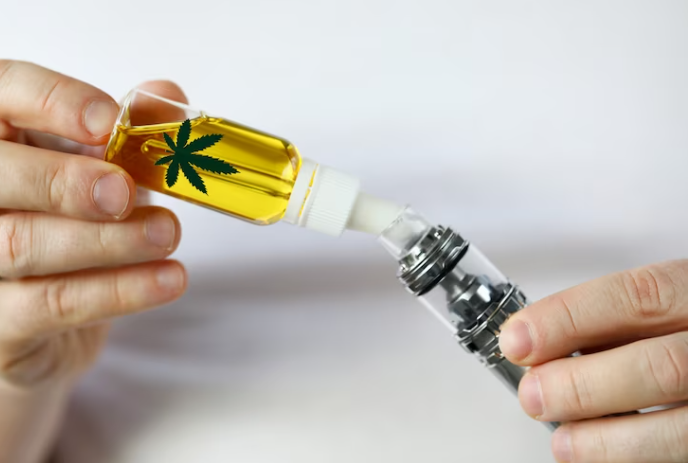The Science Behind CBD Concentration: Understanding Potency, Dosage, and Effectiveness
CBD, short for cannabidiol, has gained significant popularity in recent years for its potential health benefits. As interest in CBD continues to grow, it becomes essential to understand the science behind its concentration, potency, dosage, and overall effectiveness. In this article, we will explore various aspects of CBD concentration, providing insights based on both scientific knowledge and practical experiences.
The Science Behind CBD Concentration
CBD concentration refers to the amount of cannabidiol present in a CBD product, typically measured in milligrams (mg) per milliliter (ml). Understanding CBD concentration is crucial as it directly affects the product’s potency and, consequently, its effectiveness.
Factors Affecting CBD Concentration
To comprehend CBD concentration better, let’s explore the key factors that influence it:
Hemp Strain Variability
Different hemp strains contain varying levels of CBD. Some strains are specifically bred to be high in CBD, while others may have more THC, the psychoactive component in cannabis. Selecting the right strain is essential to achieve the desired CBD concentration.
Extraction Methods
Various extraction methods are employed to isolate CBD from the hemp plant. CO2 extraction and ethanol extraction are common methods that yield different CBD concentrations. CO2 extraction is known for producing purer CBD with higher potency.
Product Type
CBD products come in various forms, such as oils, tinctures, edibles, and topicals. Each product type has its unique CBD concentration, affecting how it is consumed and absorbed by the body.
Understanding CBD Potency
CBD potency refers to the strength or effectiveness of a CBD product. It is crucial to differentiate CBD concentration from potency. While concentration relates to the amount of CBD per unit volume, potency refers to the strength of the CBD in producing its effects.
Factors Affecting CBD Potency
The potency of a CBD product is influenced by several factors:
CBD Concentration
Higher CBD concentrations generally result in more potent products. It is important to find the right balance of concentration for individual needs.
Full-Spectrum vs. Broad-Spectrum vs. Isolate
Full-spectrum CBD products contain a wide range of cannabinoids, including THC, which can enhance the overall potency through the “entourage effect.” Broad-spectrum products contain other cannabinoids but no THC, while CBD isolate is the purest form with only CBD.
Bioavailability
Bioavailability refers to the rate and extent at which CBD is absorbed into the bloodstream. Products with higher bioavailability tend to have greater potency as more CBD reaches the target receptors.
Finding the Right CBD Dosage
Determining the appropriate CBD dosage is crucial to achieve the desired therapeutic effects without adverse reactions.
Factors Affecting CBD Dosage
Several factors influence the ideal CBD dosage for an individual:
Weight and Body Composition
Individuals with higher body weight may require a higher CBD dosage to experience the same effects as someone with a lower weight.
Tolerance
CBD tolerance can develop over time, necessitating adjustments in dosage to maintain the same level of effectiveness.
Severity of Condition
The severity of the condition being treated plays a role in determining the optimal CBD dosage. Serious ailments may require higher doses for noticeable effects.
Metabolism
Metabolic rates vary among individuals, affecting how quickly CBD is processed in the body. Faster metabolism may require more frequent dosing.
The Effectiveness of CBD for Different Conditions
CBD has been studied for various health conditions, and its effectiveness varies depending on the ailment.
CBD for Pain Management
How CBD Works for Pain
CBD interacts with the endocannabinoid system, which regulates pain perception, leading to potential pain relief.
Dosage Recommendations for Pain
The optimal CBD dosage for pain relief depends on factors such as the severity of pain and individual tolerance.
Scientific Studies on CBD for Pain
Several studies have shown promising results regarding the use of CBD for managing chronic pain conditions.
CBD for Anxiety and Stress
CBD’s Anxiolytic Effects
CBD may help reduce anxiety and stress by affecting serotonin receptors in the brain.
Finding the Right CBD Dosage for Anxiety
Individuals with anxiety may require lower doses of CBD compared to those using it for other purposes.
Scientific Studies on CBD for Anxiety
Numerous studies have explored CBD’s potential to alleviate anxiety-related disorders.
CBD for Sleep Disorders
CBD’s Impact on Sleep
CBD has shown potential in promoting better sleep by addressing underlying causes of insomnia.
Recommended CBD Dosage for Sleep
The ideal CBD dosage for improving sleep quality may differ from other therapeutic uses.
Scientific Studies on CBD for Sleep
Research has suggested that CBD may have a positive impact on sleep patterns.
FAQs
Can CBD Get You High?
No, CBD is non-intoxicating and does not produce a “high” effect. THC is the psychoactive compound responsible for the euphoric sensation associated with cannabis.
Is CBD Legal?
The legal status of CBD varies by country and state. In many places, CBD derived from hemp with less than 0.3% THC is legal, but it’s essential to check local regulations.
Can I Overdose on CBD?
CBD is generally well-tolerated, and overdosing is unlikely. However, exceeding recommended dosages may lead to mild side effects like drowsiness or dry mouth.
How Long Does CBD Stay in Your System?
The duration CBD remains in your system depends on factors like dosage, metabolism, and frequency of use. It typically ranges from a few hours to several days.
Can I Give CBD to My Pets?
Yes, CBD products formulated for pets are available. However, consult a veterinarian to determine the appropriate dosage and ensure your pet’s safety.
Is CBD Addictive?
CBD is considered non-addictive and does not lead to dependence. It interacts differently with the endocannabinoid system than substances like THC or opioids.
Conclusion
Understanding the science behind CBD concentration, potency, dosage, and effectiveness is vital for making informed decisions about using CBD for various health conditions. By considering factors like concentration, potency, and individual factors, individuals can maximize the benefits of CBD while minimizing any potential risks. Always consult a healthcare professional before starting any CBD regimen, especially if you are taking other medications or have underlying health issues.

